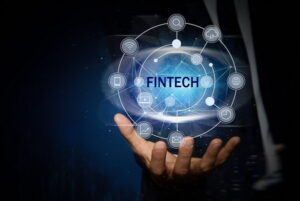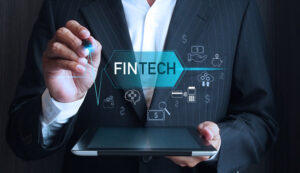The combination of blockchain technology and artificial intelligence (AI) is revolutionizing the financial technology (fintech) industry and creating a hub for innovation. Blockchain offers decentralization, security, and transparency, while AI enables unprecedented automation and data analytics. They form a powerful combination that can transform industries from fraud detection to smart contracts.
To improve productivity, reduce costs, and increase trust in online transactions, governments, financial institutions, and even entrepreneurs are harnessing this synergy. Together, the growing potential of these technologies opens up new possibilities for automated transactions, secure identity verification, and decentralized finance (DeFi). The future of fintech rests on this powerful combination of immutability and intelligence.
How AI Enhances Blockchain Technology:
AI further enhances blockchain’s capabilities, offering advanced data processing and predictive analytics. Blockchain networks generate vast amounts of data, and AI can analyze it to spot trends, predict market trends, and streamline transactions. AI algorithms, for instance, can enhance the blockchain consensus process, making it faster and more energy-efficient. Furthermore, machine learning models enhance security by promptly identifying suspicious activity and thwarting cyber threats. AI integration can also enable smarter smart contracts that can execute themselves based on real data input, minimizing human intervention.
The Role of Blockchain in Improving AI Systems:
Blockchain provides a transparent and secure operating environment for AI, solving key issues such as trust and data integrity. Blockchain ensures that the data input into AI models is verifiable and immutable, which is crucial because AI relies heavily on high-quality data. This functionality is especially important in industries such as healthcare and banking, where incorrect data can lead to costly mistakes. Furthermore, blockchain facilitates decentralized AI, enabling the training of models on decentralized datasets without jeopardizing anonymity. AI developers can use blockchain technology to generate an auditable path for decision-making processes, improving accountability and reducing bias in automated systems.
Applications of Blockchain and AI in Financial Technology:
The combination of blockchain and AI has already revolutionized financial technology with groundbreaking applications. By predicting asset prices, AI-driven analytics technology in decentralized finance (DeFi) can help users make informed investment decisions. Blockchain and AI-driven fraud detection solutions are more accurate than traditional technologies in detecting and blocking fraudulent transactions. Automated credit scoring is another fascinating use case, where blockchain verifies the legitimacy of the data, while AI assesses the risk of the borrower. Blockchain enables fast and cheap transactions, while AI optimizes exchange rates, which also facilitates cross-border payments. With these developments, the fintech revolution has only just begun.
Challenges of Combining Blockchain and AI:
Despite the enormous potential of AI and blockchain, there are still many hurdles to overcome. Scalability remains a major issue, as both systems require a lot of computing power, which increases prices and energy consumption. Data protection regulations such as the General Data Protection Regulation (GDPR) impose strict compliance requirements, making the application of AI in blockchain more complex. In addition, interoperability between different blockchain networks and AI systems needs to be improved for smooth integration. Finally, the lack of qualified experts in blockchain and AI has slowed down their adoption. We must overcome these challenges to achieve widespread adoption.
The Role of Blockchain and Artificial Intelligence in Finance:
The close collaboration between blockchain and artificial intelligence will shape the future of fintech and create a more secure and independent financial ecosystem. Artificial intelligence is expected to significantly improve the operation of blockchain, making it more flexible and efficient. On the other hand, blockchain will continue to provide a reliable source of data for artificial intelligence, increasing its reliability. Emerging technologies such as tokenized artificial intelligence services and AI-powered decentralized autonomous organizations (DAOs) will continue to gain popularity. Regulation changes will accelerate the adoption of these technologies, paving the way for a more intelligent, efficient, and transparent financial world.
Conclusion:
There is no doubt that the combination of blockchain technology and artificial intelligence will revolutionize fintech by fostering synergies to improve efficiency, security, and creativity. The transparency of blockchain and the analytical capabilities of artificial intelligence open up new possibilities for automated trading, fraud detection, and decentralized finance (DeFi). While challenges such as regulation and scalability remain, continued development is heralding an era where different technologies will coexist harmoniously. If financial institutions can embrace this powerful combination, they will gain a competitive edge in the digital economy. As AI and blockchain continue to evolve, their collaboration will revolutionize the way we interact with money, data, and technology. Today, the FinTech revolution is smarter and more secure than ever.
FAQs:
1. How does AI improve blockchain transactions?
AI improves blockchain transactions through speed optimization, energy conservation, and real-time data analysis to identify fraudulent activity.
2. Can blockchain improve the credibility of AI?
Blockchain makes AI conclusions even more fair and reliable by ensuring data integrity and providing transparent, auditable data.
3. How is the financial industry utilizing blockchain and AI?
Smart contracts, automated trading, decentralized finance (DeFi), fraud detection, and AI-driven credit ratings are just a few examples of applications.
4. What are the main barriers to integrating blockchain with AI?
Scalability, high computing costs, regulatory compliance, and the requirement for skilled personnel are some of the major barriers.
5. How will blockchain and AI impact the future of FinTech?
They will make financial services faster, more secure, and more automated, paving the way for breakthroughs such as self-executing smart contracts and decentralized AI marketplaces.




